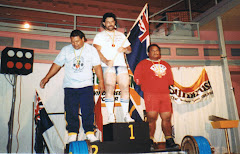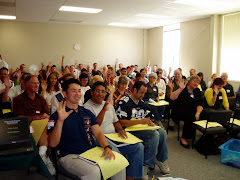
The cartoon of Snoopy reads as follows:
"Sometimes when I get up in the morning I feel very peculiar".
"I feel like I've just got to bite a cat! I feel like if I don't bite a cat before sundown, I'll go crazy!!"
"But then I just take a deep breath and forget about it".
"That's what is known as real maturity".
Now. Let's talk about you...
Ever woke up in the morning and was aware that you felt peculiar but wasn't sure of what it is that's causing it? And then, as the day progressed, you found yourself being "shitty" with those who ventured across your path throughout the day. It's possible you didn't even realise that you were peculiar and yet felt, that if any one steps out of line today, you are going to "bite" them, for sure!
How aware are you of the mood you wake up in? How aware are you of the state or attitude you carry with you throughout your day? Few people I meet are actually aware of their mood and show a complete lack of maturity in their willingness to manage them better. (moods is what I'm talking about!) These people certainly do not have the maturity, that Snoopy speaks of in the Peanuts cartoon above.
Your ability to know the state of mind you are in and your ability to positively change your mood is in deed a must have life-skill and a powerful demonstration of personal mastery. The cost to yourself and those around you is huge, when you decide that you will "... bite a cat before sundown...".
An Example
When I deliver training I meet thousands of people each year. Those attending may be present in a workshop for as little as a few hours, or as long as a number of consecutive days. It's a skill I have as a trainer, to quickly identify the person or people who have woken up wanting to "...bite a cat". And in this case it's me they want to bite or the content, that they want to bite into and tear apart. These people are typically unable to "...take a deep breath and forget about it" as Snoopy is able to. Instead, these trainees remain in the same mood for the entire training session and miss the life changing effect that others in the same room are experiencing. (sad but true!).
The funniest thing (this is true), is to ask them, at the end of the training, to fill in a feedback form about how they found the training! Do you think they can show their maturity at this time? Or, will they wallow in their peculiar mood and fill the feedback form in, based on their need to "...bite a cat before sundown!" (you know the answer - don't you)
A Critical Skill
Our ability to be aware of our moods and have the ability to change our moods is a must have life skill. Leadership without this skill is dangerous and will cause great expense to the organisation. Parents who are unable to do this will drive their children out of their home when they are old enough to leave, or send their children off to school in tears - all because mum or dad woke up, wanting to "...bite a cat!"
Our ability to be aware of our moods and have the ability to change our moods is a must have life skill. Leadership without this skill is dangerous and will cause great expense to the organisation. Parents who are unable to do this will drive their children out of their home when they are old enough to leave, or send their children off to school in tears - all because mum or dad woke up, wanting to "...bite a cat!"

Lovers who do not manage their moods and have the skill of transforming their moods will find the relationship to be difficult and at worst, violent!
How important is it that we learn what Snoopy speaks of?
In my own opinion - it is critical.
Business Deficit
When will businesses learn that emotional management will always result in less personal grievances and performance problems within the work place? When will a Human Resources Department address the need for staff to learn how to manage their emotions, behaviours and communication? When will they (if at all) realise that the Workforce Development Manager or Professional Development & Training Advisor, plays a critical role in providing training to staff that directly addresses this problem, rampant in businesses throughout our country (and likely yours too).
It is more likely that they will not, than they will.
With a corporate focus placed on performance and achieving KPI's, it is more likely that they will maintain the current beat of the drum that has always sounded and continues to drive for increased performance and staff conformity. Leaving the "soft-skills" as an unnecessary part of staff development. As a result of this focus, staff will continue to "bite" one another and the HR Advisers will always be an ambulance at the bottom of the corporate cliff, trying to salvage those who have fallen, due to work colleagues and managers who have no ability to recognise the need to better manage their emotions and preferably, have learnt the skill of how to transform them.
What are the benefits to a business that has this type of approach?
Increased performance and profit, reduced stress and staff attrition, increased staff engagement and a work culture that is distinctly different than the typical, emotionally immature organisation who has a culture where we will "... bite a cat before sundown!".






































































